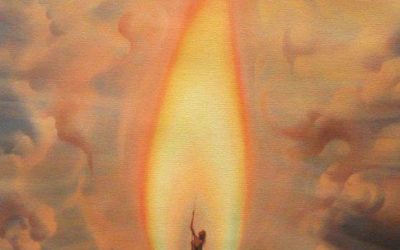 Death is always with us; an inescapable promise that goes hand-in-hand with life. And yet there are times when the undeniable presence of death comes in closer than usual, making its reality acutely known and felt.
Death is always with us; an inescapable promise that goes hand-in-hand with life. And yet there are times when the undeniable presence of death comes in closer than usual, making its reality acutely known and felt.
Whether it’s a death from heart-wrenching suicide, or after a long-battled physical illness, or due to a tragic accident, or as a sudden, unexpected surprise—there is nothing like Death Medicine to bring us intimately close to the mysterious, precarious edge of our aliveness. When death comes in close we notice our own precious, mortal breath pressed up against the holy, vast unknown. Death sends ripples out into the communities it impacts, making waves—through the hearts of loved ones, and then to everyone those lives touch. In this way, death boldly illuminates and accentuates the ever-changing web and field of life we blessedly share.
When death comes for someone we personally cherish, we are thrust into the incomparable life experience of grieving. In our grief, it is natural to fluctuate rapidly between extremely diverse perspectives. In one moment, we might revel in celebration of our beloved’s beauty, feeling nothing but humbled gratitude to have known such a miraculous love. And then in the next moment, we might get lost for a time in rage or sorrow—searching our soul for a way to reckon with a loss that feels wholly unacceptable. Sometimes we experience a bittersweet joy and relief upon the passing, knowing that the suffering their life may have included has been released. We are grateful to sense their human pain transmuted and transcended now; we imagine them flying free. At other times we would give anything just to have one more moment with the form of this one we so desperately miss.
When death comes close but not that close, we watch respectfully from the periphery those closest in to the loss. We let our hands rest upon our compassionate beating hearts—empathizing, bowing, sending love, sending prayers. We pray only that their tender, grieving hearts might just keep breaking open even wider into the love that holds it all.
When death comes in close enough not to devastate us, but still to touch us deeply, we think of everyone we love so dearly. We remember, at least for a moment, that all form is temporary and fleeting. We remember that along with the rest of life, we are present here, embodied like this in our world, only for the briefest of moments. We count our blessings, we give thanks for the aliveness of those closest to us, while soberly knowing it is truly only a matter of time before the circle of life returns us to whatever lies beyond this lifetime.
We look down at our own slowly aging hands, our own ever-changing bodies, still breathing, full of life for now. We pull our beloved children in close to us and breathe their scent deeply in, making a memory through active cherishing. We behold our lovers, our parents, our furry creatures, our dearest friends, and even those we do not know, and we see them through fresh eyes, taking in their light, their warmth, their utterly unique beauty.
With Death Medicine comes an awake and refined sense of presence in life. We remember to notice what it feels like as the soles of our feet touch the earth. As the sun kindly lifts our face to kiss us, we notice the sweet smell of flowers on the wind. When we’re dancing, we notice how much gravity loves us to lean in and taste it. We delight in each sunset, crescent moon, and starshine. We notice the hummingbird, resting for just a heartbeat, on the tiniest thread of branch. We wonder at the mysterious animating force that enlivens these bodies, arousing these senses, only for a time.
If we are lucky, we suddenly become present to the most essential questions:
What in this moment of my life, if anything, remains unlived?
What remains unspoken, unforgiven, unthanked, unsung, unloved?
What of my assignments remain incomplete?
We notice what we’ve been postponing, and we feel the sacred urge to leap. Upon deeper inquiry, perhaps we notice we are actually afraid of living and loving our lives the way we yearn to. And then, perhaps, we notice an even deeper fear: We fear missing out on our own lives; we fear dying an unlived life. What did we come to say, to give, to live, to serve? And what on earth are we waiting for?
When death comes in close, we notice that WE ARE ALIVE, and that we are literally surrounded by all of it: by the living and the dying and the dead. We cannot help but feel the sacred continuum in which we are a tiny yet essential link. We feel the poignancy of being led simultaneously by the light of our ancestors and the dreams of our unborn great-grandchildren.
When death comes in close, we notice that we truly love to live; to take our humble place in the great circle of life. And we confess quietly to our own hearts how vulnerable we feel in this love and this aliveness.
We pray for right relationship with all of life. We pray for clarity, humility, maturity, patience, discipline, dignity, and integrity. We pray for wisdom, empathy, truth, kindness, and compassion.
And then we bow to one another and to ourselves. We bow to this Death Medicine that never fails to shake our hearts wider open to life. We stand at the threshold of inevitable death, and we say to life: “Thank you, thank you, thank you.”



Facebook Comments